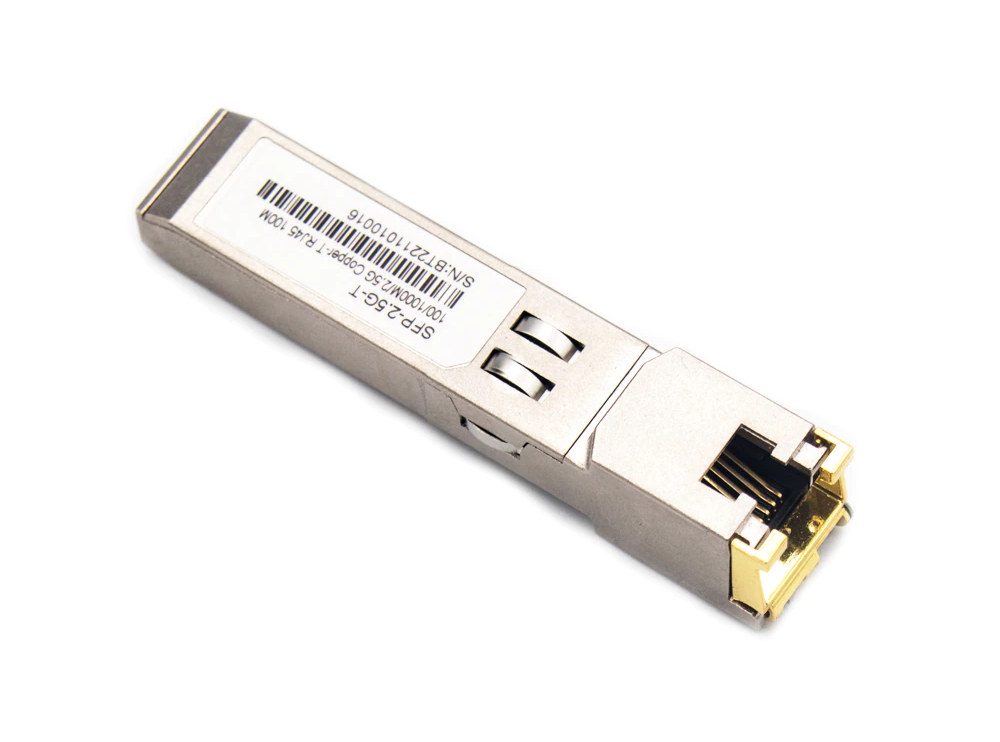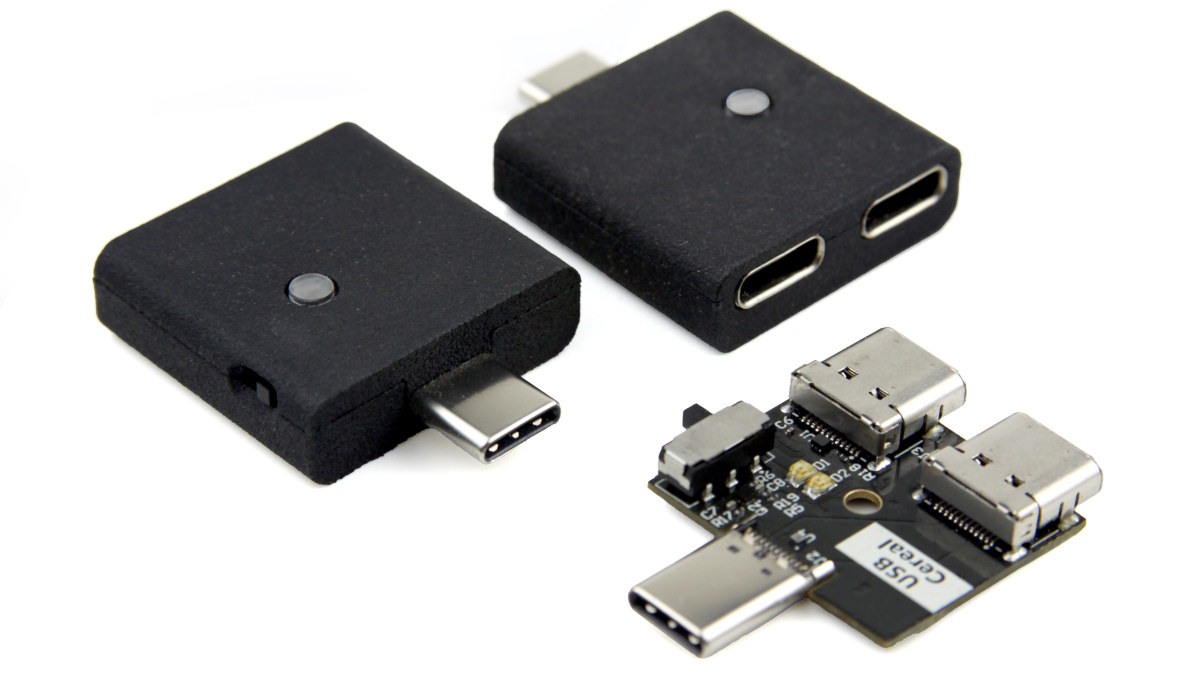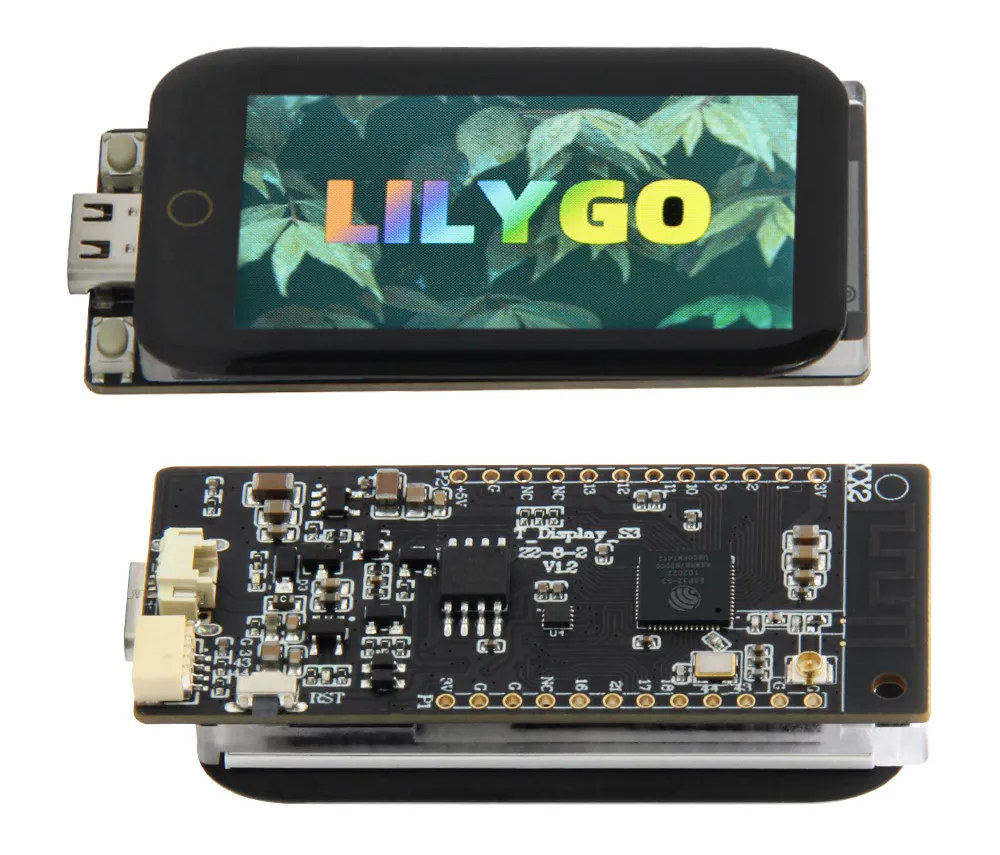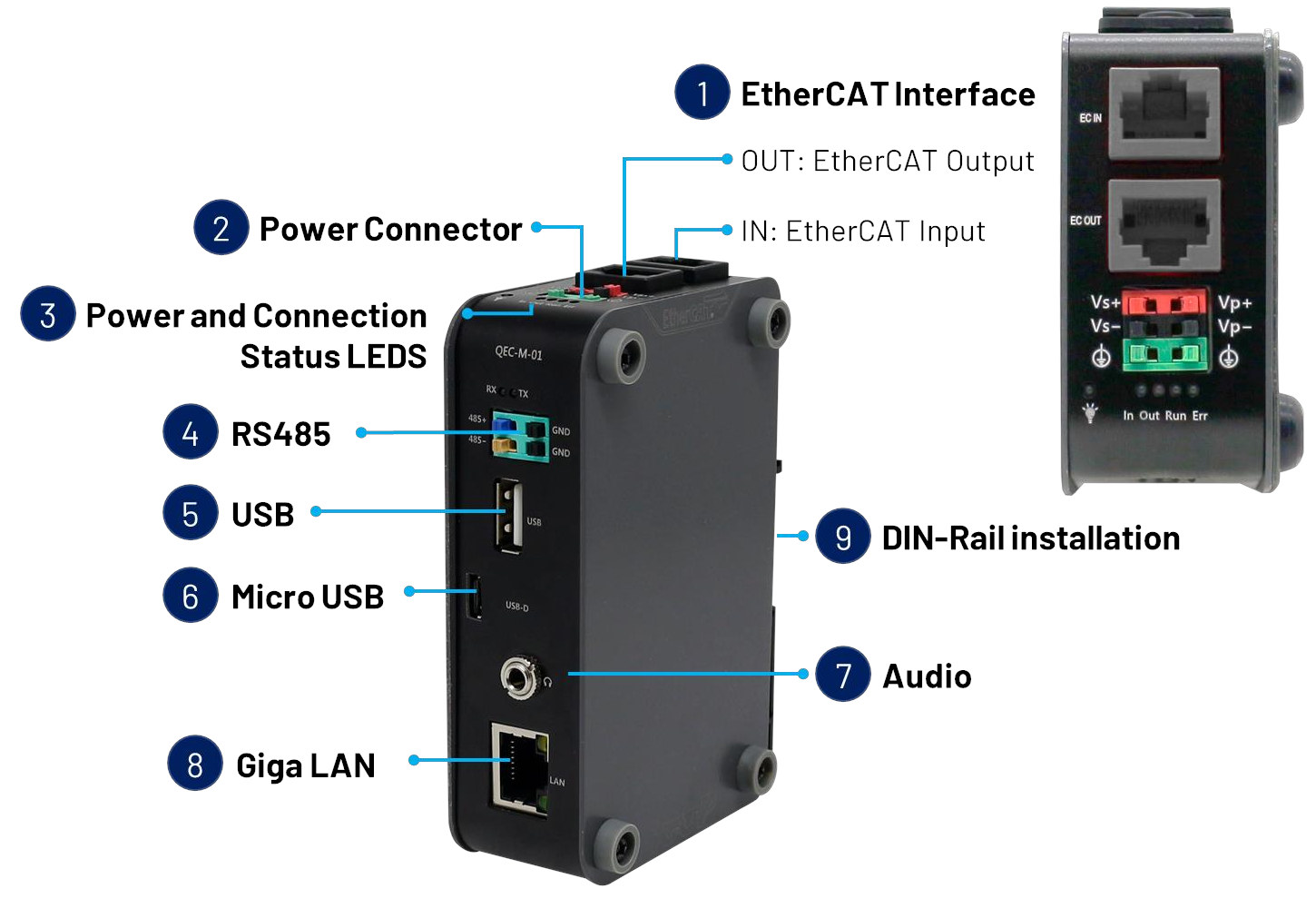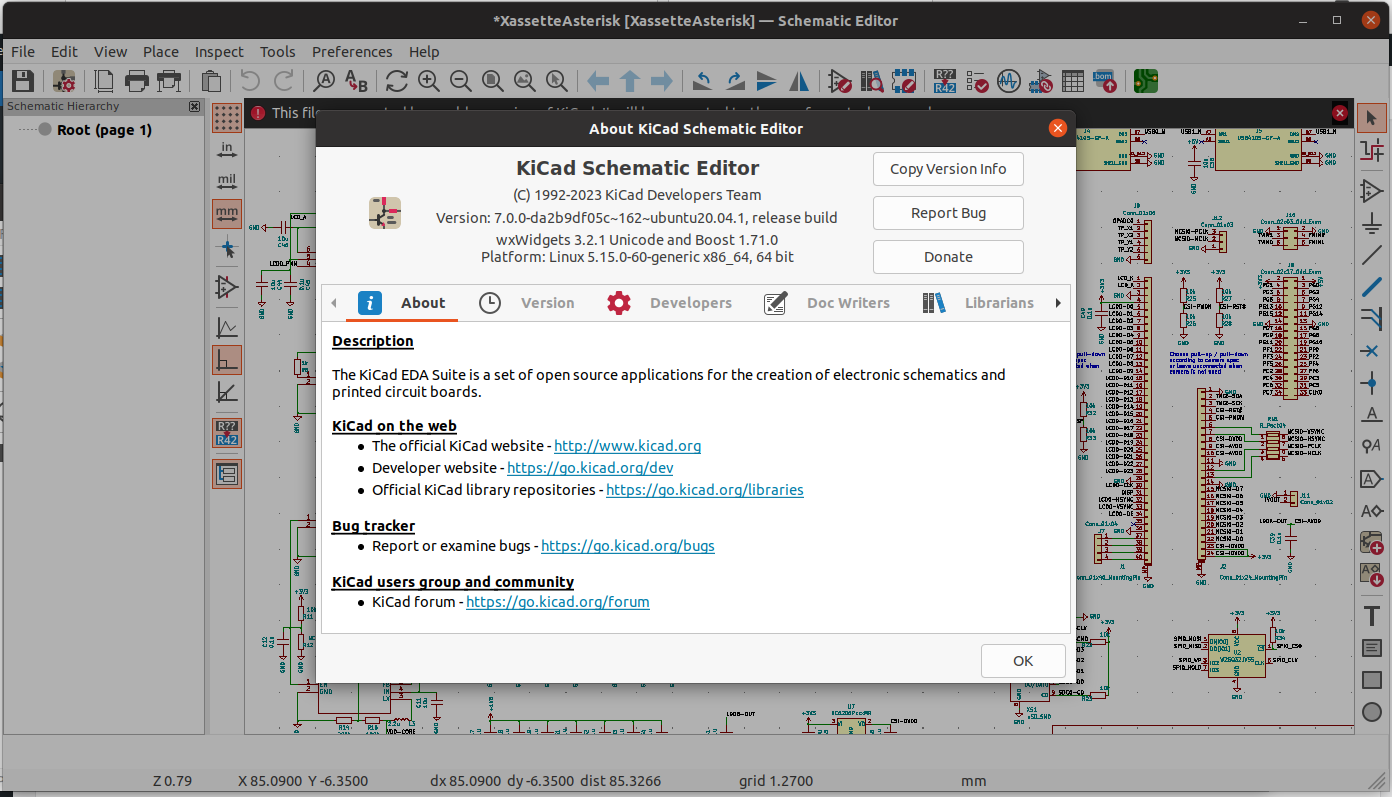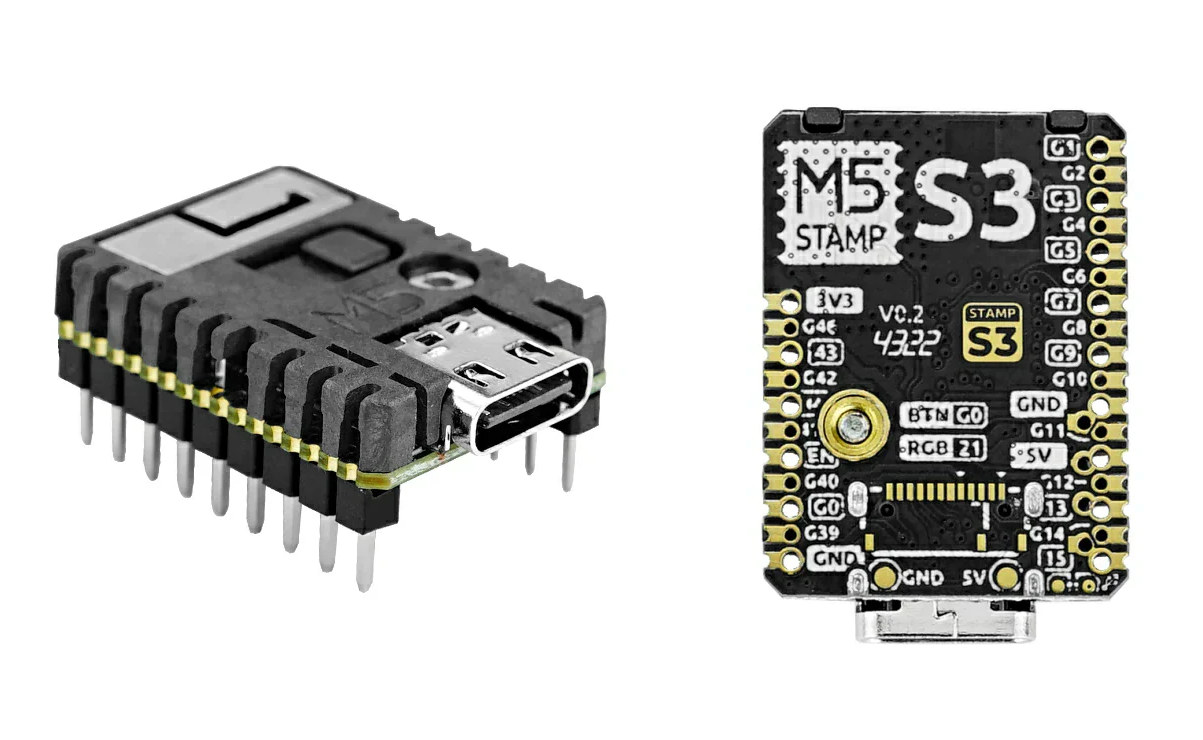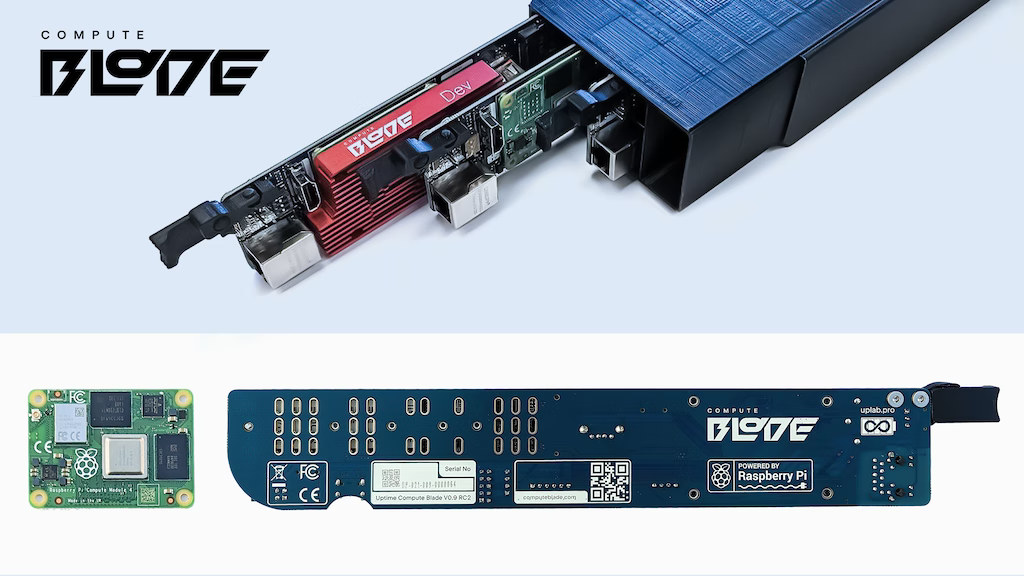Heata, which began as an innovation project with British Gas, is a UK company that connects a server to your hot water cylinder and provides hot water to the house master for free up to 4.8 kWh per day, and at least 2.5 kWh as per contractual obligations. Companies spend millions of dollars to cool the servers hosted in their data centers and most of that heat is completely wasted. So Heata decided to create a win-win solution that lowers their cooling cost and provides free hot water to whoever has their server installed in their house. The installation process is said to be tested and approved by British Gas so you don’t lose your hot water cylinder warranty, and the heat transfer mechanism is patented as well under the UK patent GB2576035. A technician would come to cut the insulation and attach a thermal bridge to the cylinder. The […]
2.5Gbps SFP to RJ45 Ethernet adapter sells for $25 shipped
Banana Pi has started selling an inexpensive 2.5Gbps SFP to RJ45 adapter for their Banana Pi BPI-R3 WiFi 6 router board that goes for $17.89 plus shipping ($25 shipped here) on Aliexpress. The BPI-R3 router includes five Gigabit Ethernet RJ45 ports as well as two 2.5GbE SFP cages, but since not everybody has equipment that takes SFP cables, they used to sell it with a $30 TP-Link adapter. The company now appears to have found a cheaper model marked “SFP-2.5G-T” module that works with their board. It’s designed to be inserted into one of the 2.5GbE SFP cages and provide a more common 2.5GbE RJ45 port to the user. There’s very little information about the module except its designed with an up to 100-meter cable, and the serial number BT2211010016 only points to Banana Pi’s Wiki. But I don’t think the company designed its own adapter and found another Wiki […]
USB Cereal is an open-source hardware USB-C debugging & development tool (Crowdfunding)
0xDA LLC’s USB Cereal is an open-source hardware development tool with three USB-C ports designed to simplify the testing, development, debugging, and manufacturing of devices with USB Type-C ports. Initially originated at Google, the USB Cereal project has gone through multiple revisions to optimize its quality and lower the BoM cost, and the device can be used for all sorts of USB Type-C debugging using a UART serial communication with the host device through the USB-C sideband use (SBU) pins typically reserved for device-specific applications. USB Cereal specifications: USB Type-C ports 2x USB-C ports for passthrough between the host and device under test (DUT) Note: the DUT port is on the side with a single USB Type-C connector No orientation detection has been implemented to keep the design as simple and inexpensive as possible 1x USB-C port for capture support to 3 Mbps connected through FTDI FT232RNQ USB to TTL […]
T-Display-S3 Touch ESP32-S3 board adds a touchscreen panel
T-Display-S3 Touch is an update to the T-Display-S3 “Basic” ESP32-S3 board that adds a 320×170 touchscreen using a CST816 I2C touchscreen sensor. The rest of the specifications remains the same with an ESP32-S3R8 dual-core WiFi and Bluetooth LE microcontroller, 16MB flash, a 1.9-inch 320×170 color display, a USB Type-C port, a few I/Os, and support for a LiPo battery. T-Display-S3 Touch specifications: Wireless MCU – Espressif Systems ESP32-S3R8 dual-core Tensilica LX7 @ up to 240 MHz with vector instructions for AI acceleration, 512KB RAM, 8MB PSRAM, wireless connectivity Storage – 16MB flash Connectivity via ESP32-S3 2.4 GHz 802.11 b/g/n Wi-Fi 4 with 40 MHz bandwidth support Bluetooth Low Energy (BLE) 5.0 connectivity with long-range support, up to 2Mbps data rate. PCB antenna and external u.FL antenna support Display – 1.9-inch 320×170 IPS full-color LCD using the ST7789V 8-bit parallel display controller and Shenzhen Zhengxin CST816 I2C touchscreen sensor. USB – […]
Arduino-programmable EtherCAT master runs FreeDOS on Vortex86EX2 x86 processor
ICOP QEC-M-01 is an EtherCAT master system running FreeDOS based on DM&P Vortex86EX2 dual-core x86 processor. It is programmable with an industrial Arduino IDE – the 86Duino IDE – that supports an EtherCAT API for real-time field monitoring and big data collection. The system can be used for industrial automation applications that require precise timing and it can monitor the hardware’s voltage, current, and temperature to calculate/estimate carbon emissions for industrial manufacturing to assist in the tracking of a factory’s carbon footprint. ICOP QEC-M-01 specifications: SoC – DM&P Vortex86EX2 dual-core processor with the Master core clocked up to 600MHz and the Slave core up to 400MHz System Memory – 1GB or 2GB DDR3 Storage – 32MB SPI Flash, MicroSD card, optional eMMC flash Networking Gigabit Ethernet RJ45 port 2x 10/100Mbps Ethernet RJ45 ports for EtherCAT master with support for CANopen over EtherCAT (CoE), File Access over EtherCAT (FoE), Distributed Clocks […]
KiCad 7.0.0 release – Custom fonts, text boxes, SpaceMouse, crash reporting, and much more
KiCad 7.0.0 open-source EDA software has just been released with a range of new features from custom fonts to 3Dconnexion SpaceMouse integration to opt-in Sentry crash reporting, and many more changes. It took over three years between KiCad 5.0.0 and KiCad 6.0.0 announcements, but only a little over a year for the release of KiCad 7.0.0. Did KiCad developers acquire superhuman abilities or did AI get involved in the development somehow? Most probably not, and instead they change the release schedule to a yearly one, so we should get annual releases of the open-source EDA suite going forward, with KiCad 8.0.0 to be released in Q1 2024. Some notable changes to KiCad 7.0 include: Custom Fonts support is now available in the schematic, PCB, and worksheet editors to allow the use of any system font. Text box support was added in both the schematic and PCB editors. 3Dconnexion SpaceMouse support […]
M5Stamp S3 WiFi and BLE IoT module offers up to 23 GPIOs through 2.54mm and 1.27mm pitch holes
M5Stamp S3, aka M5Stamp ESP32S2 or Stamp S3, is a tiny ESP32-S3 WiFi & Bluetooth LE (BLE) IoT module with a USB Type-C port, over 20 I/Os available through 2.54mm and 1.27mm pitch headers and castellated holes, and a heat-resistant cover. Many of the “new” ESP32-S3 hardware platforms launches these days are often updates from an ESP32 design, and the M5Stack’s M5Stamp S3 is no exception building on the original M5Stamp Pico, and its ESP32-C3 variants, namely M5Stamp C3 and C3U. M5Stamp S3 specifications: WiSoC – Espressif Systems ESP32-S3FN8 dual-core 32-bit Xtensa LX7 microcontroller with AI vector instructions up to 240MHz, RISC-V ULP co-processor, 512KB SRAM, 2.4GHz WiFi 4 (802.11b/g/n), Bluetooth 5.0 BLE + Mesh, 8MB flash as found in the M5Stack ATOMS3 (Lite). Connectivity 2.4 GHz WiFi 4, 20 MHz and 40 MHz bandwidth, IEEE 802.11 b/g/n protocol, up to 150 Mbps Bluetooth 5, Bluetooth Mesh, with supports for […]
Compute Blade – A Rack-mountable PoE-powered Raspberry Pi CM4 carrier board with an NVMe SSD (Crowdfunding)
Uptime Lab Compute Blade is yet another Raspberry Pi CM4 carrier board, but it’s kind of unique with its long design designed to be mounted in racks and the board features an M.2 socket for an NVMe SSD plus an Ethernet port with PoE+ support. The board is designed for high-density, low-power consumption, plug-and-play blade servers for home and data-center use and users can build Home labs, edge servers with lower latency than cloud services, and CI/CD systems (build farms) for testing and software development. Compute Blade specifications: SoM – Raspberry Pi CM4 support and potentially alternative system-on-modules such as Radxa CM3 and Pine64 SoQuartz Storage NVMe SSD socket up to 22110 (2230, 2242, 2260, 2280 also supported) Optional MicroSD card slot Video Output – Optional HDMI port up to 4Kp60 Networking – Gigabit Ethernet RJ45 port with PoE+ USB USB Type-C port to flash the bootloader, eMMC/SD card, and […]



